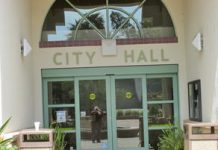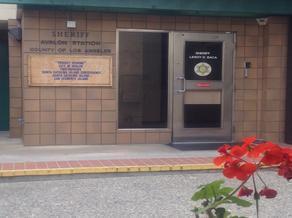If there was one thing that emerged from this year’s election results, it was perhaps further indication that we are living through a historical moment in our country. Not just in Avalon, but women everywhere are finally emerging from the shadows and are poised to have a much greater role in American political life.
For sure, women have always made tremendous contributions to our nation, and the world. Yet, it’s hard to imagine that until 1920, women had little choice but to play a role that literally prevented them from taking part in the direction and development of local and national discourse.
Nearing the turn of the 20th century, women had enough. They protested. Took to the streets and slowly, things began to change. A few localities at first, then a few states began to allow women the right to vote. After the woman’s suffrage movement exploded across the nation, the U.S. Congress finally in 1920, gave every qualified woman the right to vote.
Few of us were alive then but we are today. The current variety of woman’s movements are, of course, not the same thing, but in many ways will likely be viewed by historians, 100 years from now, as another seminal moment in time when things changed forever.
The right to vote is critical, no doubt. The right for women to fully participate in government, business and other institutions is critical too, no doubt. Until now, it’s still not easy. Although women have made progress, there is still much more to be done. Men still far outnumber women in most critical decision making roles, but it’s changing.
More than 20,000 women have registered their interest in getting involved in the political discourse as candidates, according one national woman’s group. In the mid-term race for Congress, nearly 500 women, both Republicans and Democrats, are already candidates or are about to announce their candidacies. Record numbers of women are running for local offices like those in the recent Avalon election.
This week alone, headlines were filled with change. Three women were named to a famous casino board, a first, and it was a woman with “nerves of steel” who bravely piloted a damaged airliner safely back to earth. Things are changing quickly as more and more women occupy occupations once dominated by men.
Evidence of the recent election in Avalon is just another very small sign that voters care less about gender and just want the job done. For the first time ever, women will be in the majority in the Avalon city government. That is pure history, incidental as it may be.
Here’s another way to put this into perspective. Since Woman’s Suffrage in 1920, there have been more than 30 mayors elected by the voters of Avalon. Not until the election in 2016 did Anni Marshal become the first woman ever elected by voters to the office of mayor. Another woman, Irene Strobel, honorably served the city as mayor in the 1980s, but she was elected by other members of the Council.
So while Mayor Marshall is not the first woman to serve in that office, her election was significant in that she was the first ever given the job, and now re-elected to that position, by the voting public at large.
Marshall encourages the woman’s movement and believes there may be somewhat of a wave this year, but she believes more strongly that voters returned her to office simply because they respected the job she was doing. For sure, that is impossible to refute.
Cinde MacGugan-Cassidy, the top council vote getter, also believes there perhaps was a glimmer of the movement in her re-election, but believes firmly that voters were generally blind to gender, per se, and supported her for her vision and the way she carried out her duties.
Like Marshall’s view, that is undeniably true, and, of course, this is not to say in any way anything to the contrary for either of re-elected women.
But the fact that they are women created a historical fact for Avalon.
Pam Albers, another woman elected by Avalon voters, says it was, in fact, the woman’s movement percolating throughout the land that, in part, inspired her to run. “It inspired me,” she said this week, although like Marshall and MacGugan-Cassidy, she believes simply that all women will eventually be judged on the job they do for the citizens they were elected to represent.
Nevertheless, history was made by voters in the most recent election by electing three women of Avalon. They have an extremely difficult task ahead of them. This is a pivotal period in the history of Catalina Island and it is noteworthy that voters selected a majority of women to work with the two men, Oley Olsen and Richard Hernandez, to get the job done.
So while not to over emphasize what just happened, one should not minimize it either. This is a transformational period in American history that we are living through. While Catalina’s election was perhaps not significant enough to serve as a harbinger of things to come, it should for sure wake us all up to the fact that we are living in a much different world with more dramatic changes to come.
Thankfully, the promise of change is almost always cloaked in the arms of hope.
David N. Young is editor of the Catalina Islander. He may be reached at editor@thecatalinaislander.com.










